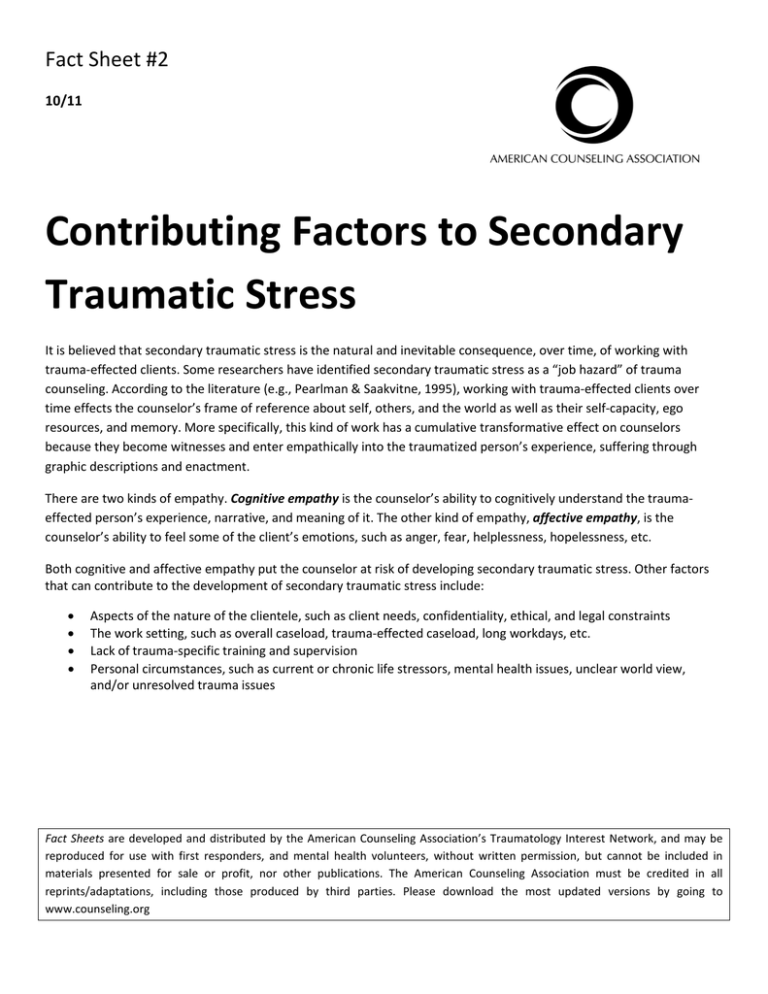Contributing Factors to Secondary Traumatic Stress
advertisement

Fact Sheet #2 10/11 Contributing Factors to Secondary Traumatic Stress It is believed that secondary traumatic stress is the natural and inevitable consequence, over time, of working with trauma-effected clients. Some researchers have identified secondary traumatic stress as a “job hazard” of trauma counseling. According to the literature (e.g., Pearlman & Saakvitne, 1995), working with trauma-effected clients over time effects the counselor’s frame of reference about self, others, and the world as well as their self-capacity, ego resources, and memory. More specifically, this kind of work has a cumulative transformative effect on counselors because they become witnesses and enter empathically into the traumatized person’s experience, suffering through graphic descriptions and enactment. There are two kinds of empathy. Cognitive empathy is the counselor’s ability to cognitively understand the traumaeffected person’s experience, narrative, and meaning of it. The other kind of empathy, affective empathy, is the counselor’s ability to feel some of the client’s emotions, such as anger, fear, helplessness, hopelessness, etc. Both cognitive and affective empathy put the counselor at risk of developing secondary traumatic stress. Other factors that can contribute to the development of secondary traumatic stress include: • • • • Aspects of the nature of the clientele, such as client needs, confidentiality, ethical, and legal constraints The work setting, such as overall caseload, trauma-effected caseload, long workdays, etc. Lack of trauma-specific training and supervision Personal circumstances, such as current or chronic life stressors, mental health issues, unclear world view, and/or unresolved trauma issues Fact Sheets are developed and distributed by the American Counseling Association’s Traumatology Interest Network, and may be reproduced for use with first responders, and mental health volunteers, without written permission, but cannot be included in materials presented for sale or profit, nor other publications. The American Counseling Association must be credited in all reprints/adaptations, including those produced by third parties. Please download the most updated versions by going to www.counseling.org

